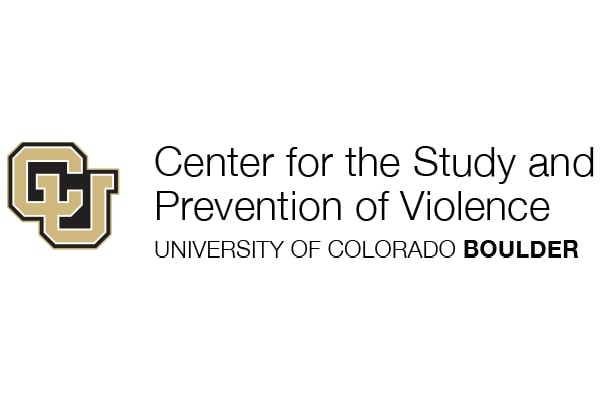On May 25, 2020, George Floyd, a Black man, was pinned on the ground for 8 minutes and 46 seconds by a white police officer, and yelled out numerous times, “I can’t breathe.” In front of the world’s eyes, George Floyd’s life was brutally extinguished. George Floyd, Breonna Taylor, Ahmaud Arbery, Trayvon Martin, Eric Garner, Elijah McClain, and Tony McDade are some of the most recent victims of centuries of violence against Black Americans. On August 23, 2020, Jacob Blake was shot in the back seven times by a police officer and is now paralyzed. He and so many others face a lifetime of trauma due to violence against Black Americans.
Direct violence is only one facet of the complex web of harms inflicted upon Black Americans. These harms include a long and horrific history of slavery; legal segregation and subordination; housing and banking discrimination; voter suppression; racial profiling; tax systems and inequitable distribution of resources; the exoneration of white perpetrators; targeted aggression; and over-policing, over-sentencing and incarceration. Systemic racism has intensified racial disparities in wealth, income, education, health, and crime, thus limiting opportunities to engage in U.S. political and social life.
We join the world in saying “enough is enough.”
Over the past few months, we at CSPV have been confronting the reality that we have not done enough to address the systems of racism, oppression, and inequity. We acknowledge these damaging systems prevent too many people in the communities and schools where we work from reaching their fullest potential.
At CSPV we work to prevent violence, which is deeply intertwined with the historical and current systems of racism. Our roles as researchers, evaluators, translators, and implementers of evidence-based and community-oriented work mean we are uniquely poised to address the root causes of violence.
We acknowledge:
- We have been complicit in a white-dominated society, culture, and organization;
- We have benefited financially as an academic organization that does research in partnership with communities of color;
- We have reinforced the academic paradigm by prioritizing educational credentials over lived experience in our hiring practices;
- We have not prioritized the lack of diversity in our staff as being a critical asset for our organization to achieve our vision and mission;
- We have not done enough to strengthen the academic pipeline and encourage non-white practitioners to join our field of study;
- We have not done enough to engage our partners in collaboration and decision-making that has real-life impacts on their communities.
We must be better. We can and will be better. We have the scientific and ethical duty to ensure equity and justice are the cornerstones of our work moving forward.
We at CSPV commit to:
- Assessing, facing, and changing systemic racism and white supremacy where it operates within CSPV.
- Developing the skills to recognize and address systemic racism, while working with humility, a willingness to listen and learn, and a commitment to positive change.
- Promoting, uplifting, and amplifying the voices of our partners, not speaking for them or for their needs.
- Using our voice and resources as researchers to demonstrate how white supremacy, white privilege, and systemic racism lead to inequities in risk and protective factors and violence in Black communities. By first identifying the systems of oppression, we can begin to change them.
- Updating our vision, mission, and values to more explicitly name what guides us in dismantling systemic racism and promoting equity in our work.
- Building an organizational culture where diverse staff are recruited, hired, engaged, and supported so that the quality of our work is improved and better outcomes are achieved.
- Deeply examining relationships with partners to ensure we are engaged in authentic collaboration to identify and address local needs.
- Regularly assessing and updating funding sources, project goals, methods, and strategies to ensure our activities are not perpetuating inequality and are supporting Black people and communities in reaching their full potential.
- Examining our strategic direction to ensure our future efforts explicitly address systems of oppression, intervene to dismantle these systems, and replace them with equitable opportunities for communities and individuals to thrive.
This is only the start.
We acknowledge that these commitments are general and not specific. As we continue to look in the mirror and understand the ways in which we can better serve our colleagues and partners, we will be accountable to and transparent about the necessary action steps. Look for updates about our movement forward.
References:
Alexander, M (2012). The New Jim Crow: Mass Incarceration in the Age of Colorblindness. New
York, NY: New Press.
Darity, W.A., & Mullen, A.K. (2020). From Here to Equality. University of North Carolina Press.
García, J.J.L., & Sharif, M.Z. Black Lives Matter: A Commentary on Racism and Public
Health, American Journal of Public Health, 2015 August; 105(8): e27-e30.
Gee, G.C., & Ford, C.L. Structural Racism and Health Inequities: Old Issues, New Directions.
De Bois Review, 2011 April; 8(1): 115-132.
Kendi, I. X. (2017). Stamped from the Beginning: The Definitive History of Racist Ideas in
America. New York: Nation Books.
Oliver, M.L., & Shapiro, T.M. (2006). Black Wealth/White Wealth: A New Perspective on Racial
Inequality, 2nd ed. New York: Routledge.
Reardon, S.F., & Owens, A. 60 Years After Brown: Trends and Consequences of School
Segregation. Annual Review of Sociology, 2014 July; 40: 199-218.

